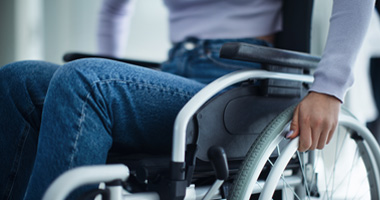The immune system protects the body from infection caused by germs like viruses. When a healthy immune system detects the presence of these intruders, it eliminates them, preventing or resolving illness.1
But when a person has an autoimmune disease, also known as an autoimmune disorder, the immune system isn’t able to distinguish between healthy cells and invading pathogens (germs).1 More than 100 known types of autoimmune disease affect more than 50 million people in the U.S.2
What is autoimmune disease?
Autoimmune diseases stem from the immune system attacking healthy tissue and organs in the body.1,3 The immune system errs, mistaking these healthy tissues and cells for foreign invaders, such as pathogens or chemicals.2
While it’s unclear exactly what prompts the immune system to become overactive, resulting in an autoimmune disease, we do know that autoimmune disorders are not contagious.1
Because autoimmune diseases can be more prevalent in families, however, it is possible that genetics could be a cause. Environmental factors, such as viruses or chemicals, may trigger the onset of an autoimmune disorder if a person has a genetic predisposition.1
How do autoimmune diseases affect the body?
Symptoms of autoimmune diseases can vary depending on the targeted organs, organ systems, tissues, or cells.4 These symptoms can also change over time, relapsing (becoming worse) and remitting (becoming less severe, but not completely stopping).1,5
Symptoms can include:3
- Inflammation
- Appetite loss
- Periodic fever
- Pain, redness, heat, or swelling that occurs in one part or several parts of the body
- Persistent tiredness
- Difficulty breathing
- Issues with the skin, such as rashes or sores
- Achy or weak muscles
- Pain in the joints
In the U.S., people of all ages and genders have autoimmune diseases, but these conditions appear to affect people assigned female at birth in greater numbers. Additionally, having one autoimmune disorder can make a person more likely to get another.1
- References
- Autoimmune diseases. MedLinePlus. https://medlineplus.gov/autoimmunediseases.html. Updated October 15, 2021. Accessed April 3, 2023.
- Autoimmune facts. Autoimmune Association. https://autoimmune.org/wp-content/uploads/2019/12/1-in-5-Brochure.pdf. Accessed April 12, 2023.
- Understanding autoimmune diseases. NIH News in Health. https://newsinhealth.nih.gov/2022/06/understanding-autoimmune-diseases. Published June 2022. Accessed April 3, 2023.
- De Luca F, Shoenfeld Y. The microbiome in autoimmune diseases. Clin Exp Immunol. 2019 Jan;195(1):74-85. doi: 10.1111/cei.13158. PMID: 29920643; PMCID: PMC6300652.
- Kaufmann U. What causes relapses of autoimmune diseases? The etiological role of autoreactive T cells. Autoimmun Rev. 2013 Sep;12(11):1070-5. doi: 10.1016/j.autrev.2013.04.001. Epub 2013 May 16. PMID: 23685277.















